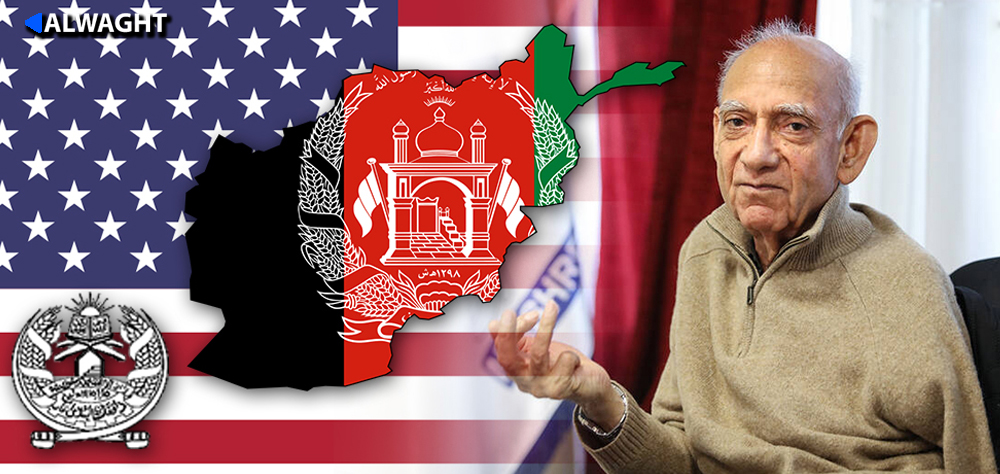Alwaght- After long years of war and bloodshed in Afghanistan and while insecurity is still the top challenge for the Central Asian country, the US began to pull out its forces from there. According to US administration, by September 11, the 20th anniversary of the attacks on the US, Washington will withdraw its forces from Afghanistan.
The decision is a substantial development influencing the future of politics and governance there. Following the announcement, some political forces in the US and Afghanistan supported the decision. However, the conservatives and even some Democrats have held that the US pullout will not help end Afghanistan civil war and that the US campaign over the past two decades reduced the risks of terrorism expansion.
Now the exit of the American troops is a key point of focus and discussion for political analysts watching Afghanistan developments. Alwaght has talked to Afghanistan affairs expert Pir-Mohammed Mollazehi, asking him questions on the development.
Taliban counting down for NATO withdrawal, seizing the power
Touching on the US decision to withdraw from Afghanistan and the Taliban's response to Biden's move, Pir-Mohammad Mollazehi said that there are many ambiguities in this connection. It should be noted that seemingly the US final date for full withdrawal is that announced by President Joe Biden. But the Taliban argue that the US should have implemented the Doha agreement signed between the group's representatives and the American special envoy to Afghanistan Zamay Khalilzad. So, the Taliban have made two issues clear: First, as long as the US forces stay in Afghanistan, they will not attend Istanbul peace conference. Second, in case of procrastination in the exit, they will attack the NATO. The threats triggered Washington decision to deploy B-52 bombers and special units to protect the troops withdrawing.
"In the current context, the Taliban believe that following the withdrawal of US forces, they can prepare their forces to attack and attempt to seize sensitive areas and centers of Afghanistan in order to easily take the power. But the Taliban's plan faces a major problem, which is the strong opposition from Tajiks, Uzbeks and Hazaras. These ethnic groups, like the Taliban, are fully prepared to take up arms. In fact, if the Taliban want to seize power through force, these groups, aware that such an action means ignorance of the ethnic, racial, and religious differences, will choose to continue the war and resistance. In fact, the northerners are as strong and motivated as the Taliban. But in the meantime, it is important to note that the Taliban do not make independent decisions, and the Pakistan Inter-Service Intelligence (ISI) plays an important role in their decisions. It is possible that Islamabad will press the Taliban to attend the Istanbul summit under US pressure."
Central government worried about partition of the country, Taliban rise to power
The Iranian expert of Afghanistan affairs also pointed to the Kabul government’s concerns about the NATO and US withdrawal, saying that the past experiences— especially those of Mohammad Najibullah government— tell us that after the Russian withdrawal, despite two-year resistance of Kabul government, Afghanistan was ethnically broken apart. The Pashtuns followed the Taliban and the Tajiks, Uzbeks, and Hazaras followed the Northern Alliance. At present, President Ashraf Ghani and his power partner Abdullah Abdullah foresee the same experience for the country.
Mr Mollazehi continued: "The Afghan government does not have the military capability to resist the Taliban. Although the government forces have fought the Taliban, it has been the NATO air cover that helped defeat the rebels. Presently a heavy fighting is underway in Lashkargah Gah in the southwest. Reports emanating from the battleground suggest that the Taliban intends to take Helmand province and move their governance capital from Pakistan's Quetta to this province."
The US seeking Taliban participation in Istanbul peace summit
Asked about the effects of the US decision among the Afghan citizens and if the withdrawal will cause distrust in Washington among the Afghans, Mr Mollazehi noted:"That the United States and the NATO withdraw from Afghanistan does not mean they will leave it to itself. The fact is that Washington does not want to pay human and financial prices anymore. Therefore, this withdrawal can be called a change in the status. The Afghan government will continue to enjoy the American backing. But the US main plan is to bring the Taliban to the negotiating table."
There are three essential initiatives in this regard, said Mr Mollazehi. He added that they include the American initiative, the Russian initiative, and Kabul government initiative. Currently, efforts are underway to merge these initiatives. Meanwhile, the certainty is that in addition to the Taliban, other ethnic groups like the Uzbeks, Hazaras, and Tajiks will be given a share in power. To realize this, a kind of federalism formula can be adopted to maintain the power of all groups in the new political structure.



























